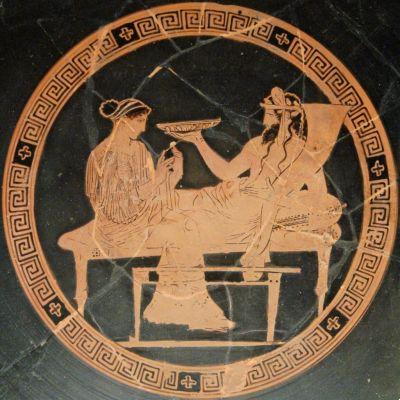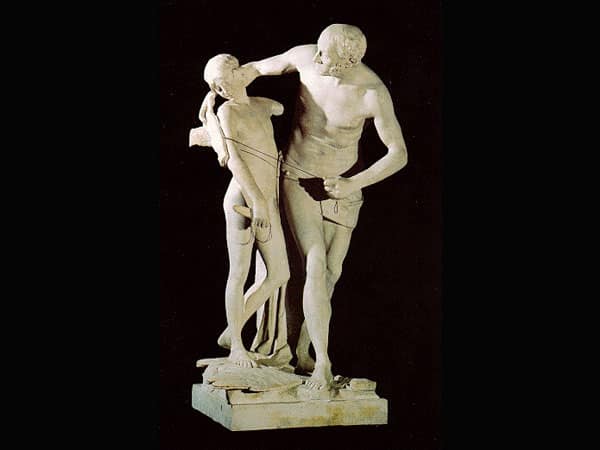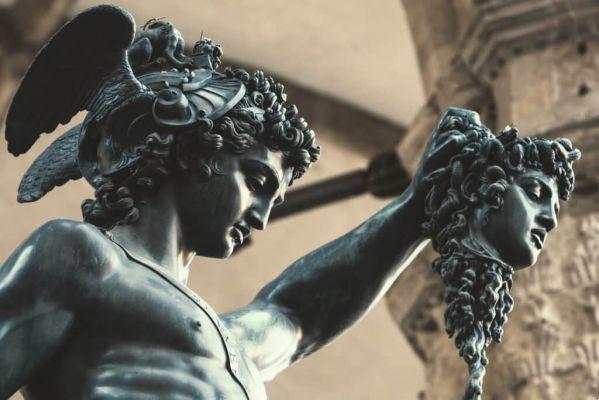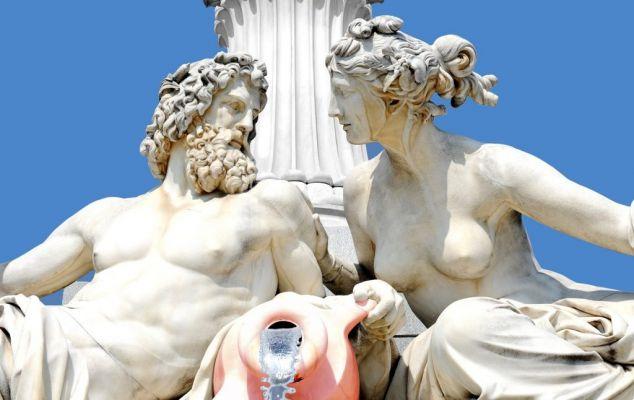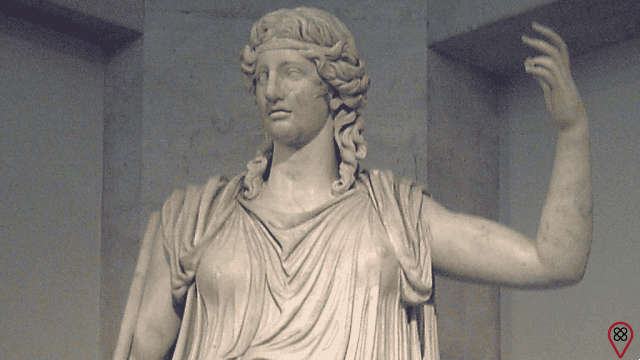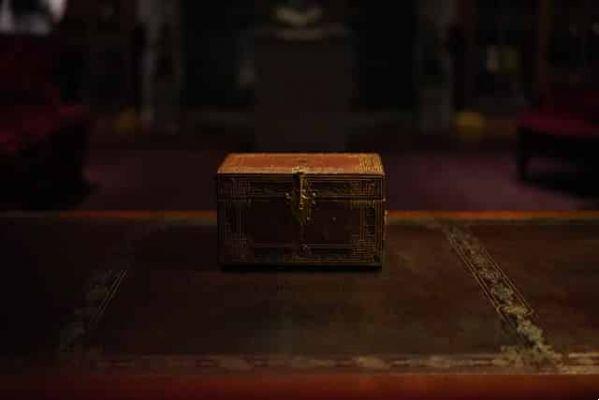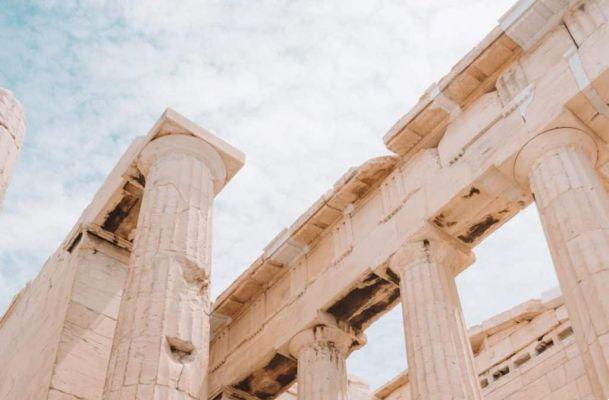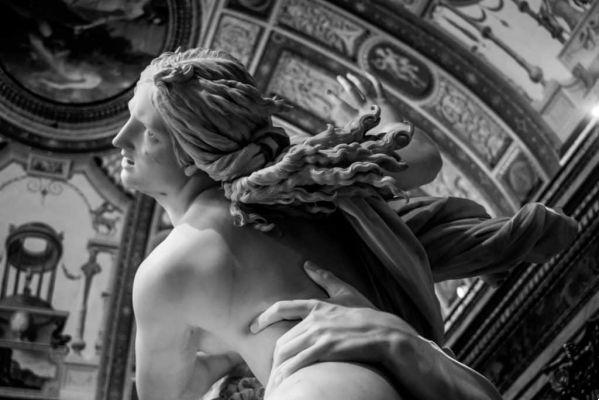Zeus, Medusa, Minotaur, Narcissus… You must have heard about some of these figures, right? You should know that they are part of Greek mythology, which was not only the religion of Ancient Greece, but a series of stories with moral lessons that teach us about the essence of being human.
To show that Greek mythology can present important lessons, we separate 5 myths that can teach us important lessons about humility, greed, patience, obedience and destiny. Check out!
1 – Narcissus and humility
Legend has it that Narcissus, son of the nymph Liriope and the god of the lakes, Cephisus, was a very beautiful boy, as beautiful as any other in the world. His beauty was such that suitors rained down on the handsome boy, from women to men, from young to old, all willing to love the most beautiful human being who ever lived.
As he knew he was very beautiful, Narcissus never found anyone he thought was his equal. He was arrogant and always found a way to despise his suitors, saying that none of them were worthy of his presence, as he was too beautiful and amazing.

Therefore, Narcissus once broke the heart of a deluded nymph, who believed that she could win the boy's heart, but her efforts were obviously in vain. The nymph then turned to the goddess Nemesis, deity of revenge, who cast a curse on Narcissus: he would fall in love with the only person who could match his own beauty.
And Narciso discovered who that person was one day, in the forest, when he approached the lake with the most crystalline waters he had ever seen. After drinking the water from the lake, Narcissus faced the surface and saw his reflection, his beautiful reflection. The only person equal to his beauty was, after all, himself!
In love with himself, Narciso became depressed, as he could not touch, talk or kiss his great love, starting to live in front of the lake, watching his own reflection. He stopped eating, stopped drinking and stopped living. A short time later, he died, avenging any and all who were saddened by his refusals.
Lesson: humility above all! While it is important that we recognize our worth, we should not look down on anyone we consider to be inferior to us. This is how we become narcissists, a word that comes from the story of Narcissus and refers to someone who has a very high opinion of himself and feels the need for admiration without having to reciprocate.
2 – Midas and Greed
Legends tell that Midas was a very powerful king and therefore very rich, with possessions and gold to spare. Despite this, he was never content with how much he had, so he was always wanting more and more, in a greed that made him destroy peaceful realms and made him a cruel person to get in his way.
One day, in a rare act of kindness, he took in a drunk and lost man who came into his kingdom, offering him bed and care. Then he received a visit from the god Bacchus, the god of wine, who said that this drunk and lost man was his father. As Midas had taken good care of his father, Bacchus would grant him one wish.
Greedy that he was, Midas wished that Bacchus would give him the ability to turn everything he touched into gold so he could be more rico than anyone else in the world, and achieve it without more wars and strife, just like the power of your touch. Saddened, Bacchus nodded and granted Midas' wish.

Fascinated, Midas went out touching everything he could: the stones turned to gold in his hands, the sands of the beaches, golden crumbs after being touched by them, even the leaves turned to pure gold. Midas was satisfied and, before starting to create his fortune, went to celebrate his new power with a feast.
What was his surprise to find that the bread from the bank turned to gold when he touched it with his hands, and that the wine turned to gold in liquid form when he touched his lips! And worst of all, her daughter, her beloved daughter, who she so valued and loved, turned into a golden statue when she hugged her father during dinner.
In tears, Midas regretted the power he had gained and begged Bacchus to lift that curse. Bacchus, a benevolent and merciful god, helped Midas and told him that whatever he washed in the waters of the Pactolus River would return to what it was before turning to gold and that his powers would end after a bath in the lake.
And that's how Midas relinquished his power and brought back his daughter, welcoming her with tears in his eyes after imagining losing her because of his own greed.
Lesson: Greed can drive us away from what we love most and can destroy everything good in life, reducing our vision to accumulating power and wealth. So, even if we want a prosperous life, this cannot be greater than the love for the people who are part of our lives!
3 – Pandora and Patience
The myth tells that Zeus, the supreme god, was furious when he realized that Prometheus, a titan, gave men the power to manipulate fire. So Zeus decided to take revenge on Prometheus, creating a beautiful and charming woman named Pandora, which he offered as a gift to Epimetheus, Prometheus' brother.
Along with the woman, Zeus sent a beautiful box, but with the express order that this box should never be opened. Knowing the power of Zeus, Epimetheus believed and took the instruction to heart, explaining to Pandora that she would never open that box.
The days passed and Pandora and Epimetheus lived a life full of love, intimate relationships, laughter and good times. The problem is that, after intimate relations, Epimetheus would fall into a deep sleep, from which she would only wake up hours later, sometimes only days later.
In this way, Pandora spent a lot of time by herself and, little by little, she felt bored and impatient in the moments when Epimetheus left her to rest after the moments of much love.

One day, both to reduce her boredom and to take petty revenge against her lover, who abandoned her to rest, Pandora decided to open the box that Zeus had sent as a gift and that he had asked never to be opened.
When the box was opened, physical, spiritual and psychological ills came out of it: diseases, anguish, sadness, misery… Everyone left Pandora's box and began to inhabit the world. It was the end of the Golden Age, when men lived without knowing evils, just enjoying life.
Realizing what she had done, Pandora quickly closed the box. The entire content had escaped, except for one thing: hope. It is because of this that, even in the face of the most complicated adversities, we are still able to maintain hope for better days, according to this myth.
Lesson: When we act impatiently or take revenge on the people we love, out of pettiness or boredom, we can destroy the harmonious world we know. In addition, there is the lesson that, even when we make mistakes and see everything fall apart, hope is always close by and we can start over.
4 – Icarus and obedience
According to this legend, Daedalus was a great inventor and architect, a man who considered himself the most skilled at what he did in all of Greece. One day, however, he realized that his nephew was also very talented and could surpass him. So, jealous, he decided to murder the boy.
The gods were angry with him and expelled of Athens, condemning him to live on the island of Crete, alongside his son, Icarus. After years and years stranded on the island, trying to find a way to escape, the ingenious inventor Daedalus managed to find a way: he created beeswax wings and seagull feathers to escape.

After giving his son a pair of wings as well, Daedalus explained to the young boy that the wings would get them out of there, but that they were very fragile and that Icarus should not get too close to the Sun, otherwise the wings would melt, nor should he go near the sea, lest the water wet his feathers.
Icarus said he understood and both took flight with the wings created by Daedalus. As he had grown up in the darkness of the island of Crete, Icarus was fascinated when he saw the sun and, ignoring his father's warnings, he got closer and closer to the star king.
Fate, of course, was cruel to the fascinated boy, because his wings melted and he drowned in the sea, as his father had warned would happen.
Lesson: The main lesson of the Icarus story is about obedience and listening to the experience of elders. In addition, it is a story about how the excesses and imprudence that we commit when we are young and do not fear danger can disrupt and even destroy our lives. Therefore, it is important that we trust our elders.
5 – Oedipus and fate
This one is for those who believe in fate!
Prince Oedipus, son of Polybi and Periboea, was living his peaceful life when he was surprised by a prophecy: one day, he would kill his own father and marry his mother. Certain that he would never do this to his family, but frightened by the prophecy, Oedipus decided to leave and live away from his parents, so as not to take any risks.
As he left, Oedipus encountered a stranger on his way, a man driving a chariot who tried to run him over. Revolted, Oedipus retaliated cruelly, knocked the man down and tied him to the chariot, dragging him to his death.
Continuing on his journey, Oedipus arrived in the city of Thebes, where he came face to face with a sphinx, a creature that murdered people who could not solve a riddle it would devise. Courageous, Oedipus faced the sphinx and unveiled the charade, killing the creature.

The city rejoiced at getting rid of the sphinx and Oedipus, celebrated, was given the chance to marry the queen there, named Jocasta, who had recently been widowed. Oedipus celebrated the opportunity and smiled as he remembered that the prophecy foretold a horrible fate for him, the opposite of what was happening.
After a long time married to Jocasta and in love with the woman, during a conversation, he discovered that his wife had had a child a long time ago, a boy who, because she and her husband were young, decided to donate to a couple called Polybus and Periboeia. .
It was then that Oedipus realized that his parents were adoptive and that his real mother was Jocasta. His father? A man named Laio, who was killed dragged by his own carriage, under conditions unknown. That is, Oedipus was the murderer of his father.
You may also like
- Meet the Gods of Greek Mythology
- Discover the Greek Myths
- Learn all about Poseidon, the god of the seas
It was at this moment, therefore, that Oedipus realized that his destiny would eventually be fulfilled, no matter how hard he tried to flee.
Lesson: Those who believe in fate know that no matter what we do to escape or escape, what is in store for us will surely come to pass, no matter how we try to escape, no matter if we think we can outwit fate. In fact, this is what happened to Oedipus.
Greek mythology is full of stories that can teach us a lot about our essence as human beings and these legends are just some of the examples. If you want to know yourself even more, try to read more Greek myths!



